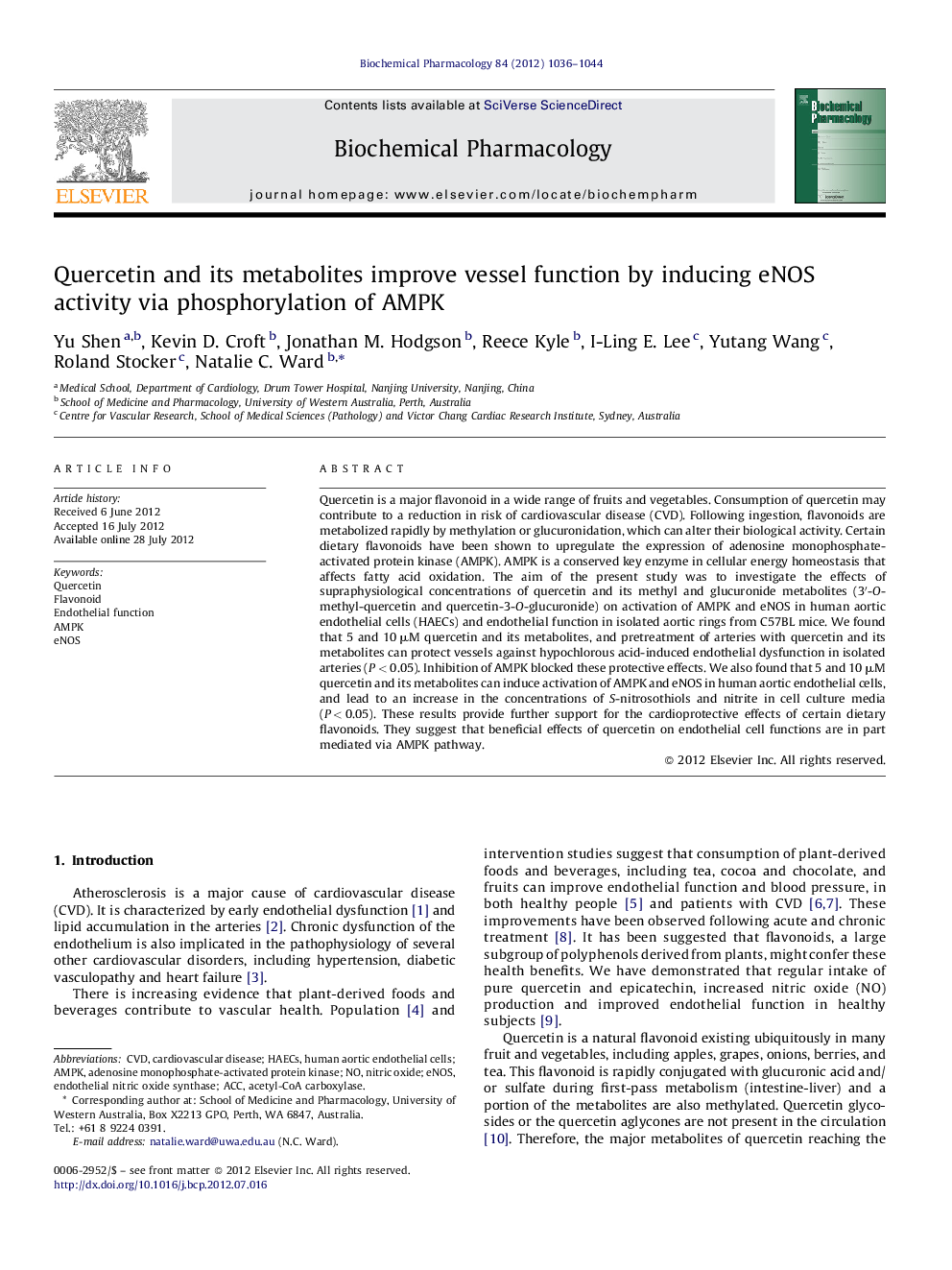| Article ID | Journal | Published Year | Pages | File Type |
|---|---|---|---|---|
| 5824024 | Biochemical Pharmacology | 2012 | 9 Pages |
Quercetin is a major flavonoid in a wide range of fruits and vegetables. Consumption of quercetin may contribute to a reduction in risk of cardiovascular disease (CVD). Following ingestion, flavonoids are metabolized rapidly by methylation or glucuronidation, which can alter their biological activity. Certain dietary flavonoids have been shown to upregulate the expression of adenosine monophosphate-activated protein kinase (AMPK). AMPK is a conserved key enzyme in cellular energy homeostasis that affects fatty acid oxidation. The aim of the present study was to investigate the effects of supraphysiological concentrations of quercetin and its methyl and glucuronide metabolites (3â²-O-methyl-quercetin and quercetin-3-O-glucuronide) on activation of AMPK and eNOS in human aortic endothelial cells (HAECs) and endothelial function in isolated aortic rings from C57BL mice. We found that 5 and 10 μM quercetin and its metabolites, and pretreatment of arteries with quercetin and its metabolites can protect vessels against hypochlorous acid-induced endothelial dysfunction in isolated arteries (P < 0.05). Inhibition of AMPK blocked these protective effects. We also found that 5 and 10 μM quercetin and its metabolites can induce activation of AMPK and eNOS in human aortic endothelial cells, and lead to an increase in the concentrations of S-nitrosothiols and nitrite in cell culture media (P < 0.05). These results provide further support for the cardioprotective effects of certain dietary flavonoids. They suggest that beneficial effects of quercetin on endothelial cell functions are in part mediated via AMPK pathway.
Graphical abstractDownload full-size image
